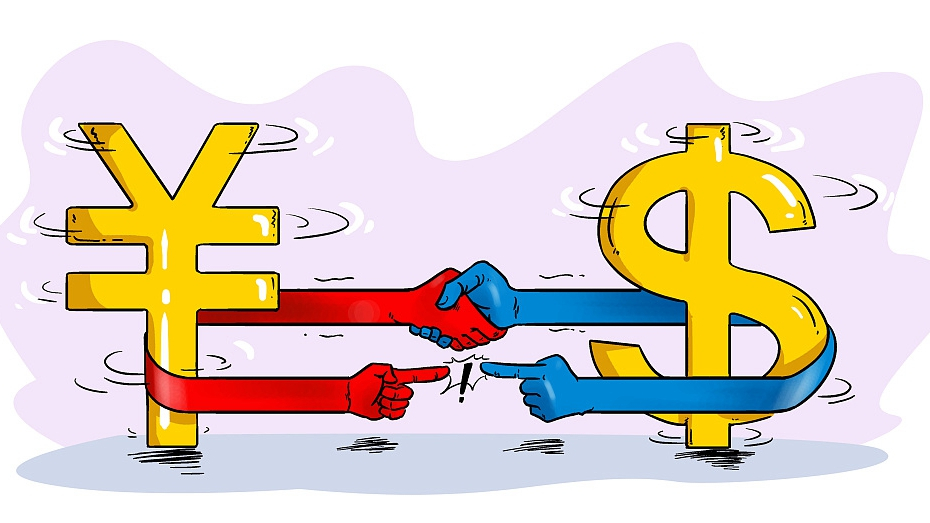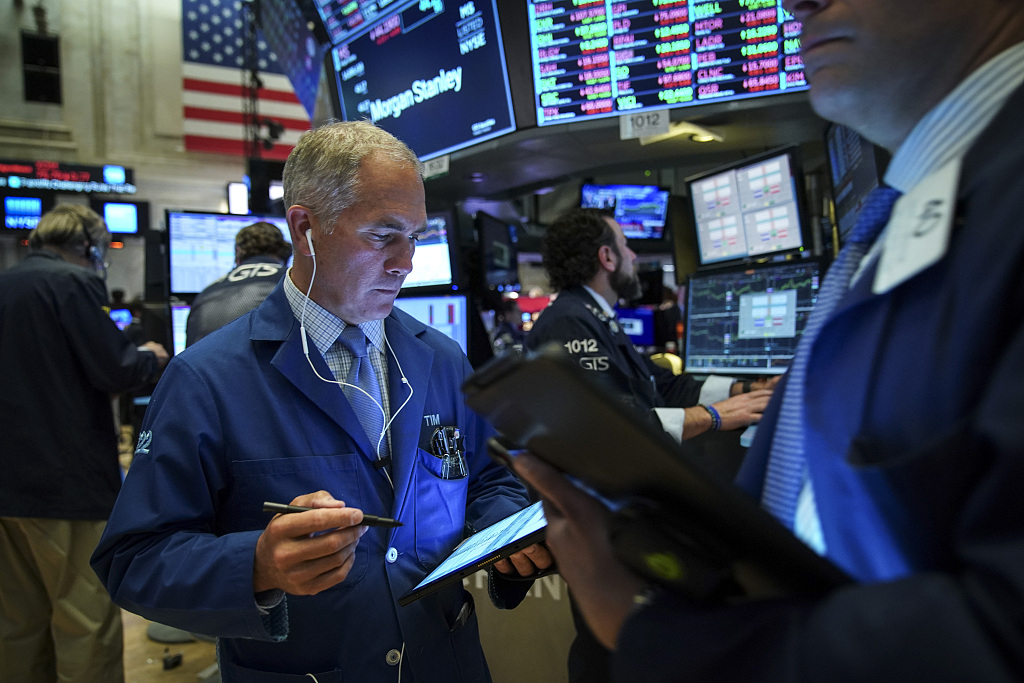
Opinion
18:47, 14-May-2019
Expert: Sticking to bottom line, China is able to meet all challenges

Editor's note: This article is an edited translation from an analysis originally published in Chinese by Xinhua News Agency on May 12.
On May 10, the U.S. began to impose a 25-percent tariff on 200 billion U.S. dollars' worth of Chinese goods. The 11th round of China-U.S. high-level trade negotiations, which concluded in Washington on the same day, was marked by China's consistent and firm position: tariff hikes cannot solve the problem, and cooperation is the only right choice for China and the United States, but cooperation shall be principled and China will never give in on major issues of principle.
Tariff hikes hurt both China, U.S.
"The tariff increase will affect companies in both countries, but it will do more harm to American companies than Chinese ones," said Gao Lingyun, a research fellow at the Institute of World Economics and Politics of the Chinese Academy of Social Sciences.
Gao said that the U.S. demand for Chinese goods will not change because of the tariff increase and U.S. importers will eventually pass additional tariffs to the consumers and retailers.
"Some data analysis shows that if the U.S. insists on imposing higher tariffs on all Chinese goods exported to the United States, it will significantly push up the domestic prices in the United States and cause inflation. While trying to hurt China, the U.S. undoubtedly inflicts damage on itself," Gao said.

Traders and financial professionals work ahead of the closing bell on the floor of the New York Stock Exchange, May 13, 2019 in New York City. /VCG Photo
Traders and financial professionals work ahead of the closing bell on the floor of the New York Stock Exchange, May 13, 2019 in New York City. /VCG Photo
The tariff increase was also strongly opposed in the United States. Recently, a number of U.S. trade associations have issued statements opposing tariff hikes against China. Among them, a lobbying campaign called "Tariffs Hurt the Heartland" estimated that raising the tariffs to 25 percent would destroy nearly one million U.S. jobs and cause a financial market turmoil.
Chen Wenling, chief economist of the China Center for International Economic Exchanges, estimated that when the U.S. imposes tariffs on 50 billion U.S. dollars and 200 billion U.S. dollars' worth of Chinese goods, more than 70 percent of the listed goods are intermediate and investment goods. With such a high proportion of intermediate and investment goods involved, any additional tariffs will eventually be borne by American businesses, consumers and farmers.
In Chen's view, the trade war sparked by the United States is self-defeating. The U.S. wants to solve the trade deficit. However, its trade deficit with China, EU and other economies is rising rather than falling. The restructuring of the global industrial chain has not been moving faster to the United States. On the contrary, U.S. auto companies such as Tesla and Ford are moving to China.
"Some U.S. companies make a very large proportion of their profits from China. Once they leave the Chinese market, they may find it difficult to survive," said Liang Ming, director of the Institute of International Trade at the Chinese Academy of International Trade and Economic Cooperation. With big data to measure the impact of the additional tariffs on 200 billion U.S. dollars' worth of Chinese goods, Liang found that the U.S. still needs to import most goods from China, while China is not very reliant on U.S. exports with the availability of other markets that could be taken as substitutes.
Experts agree that the spreading global spillover effects of the trade war pose severe challenges to the world order, rules, trade system and supply chain, and even have a negative impact on the peaceful development of the world.

A monitor displays Uber Technologies Inc. signage on the floor of the New York Stock Exchange (NYSE) in New York, U.S., May 13, 2019. /VCG Photo
A monitor displays Uber Technologies Inc. signage on the floor of the New York Stock Exchange (NYSE) in New York, U.S., May 13, 2019. /VCG Photo
"We stressed that we should not resort to tariffs, but seek a balance between our demands. This is not only China's demand, but also a rational choice made by countries in response to unreasonable trade requirements," said Dong Yan, director of the International Trade Office of the Institute of World Economics and Politics of the Chinese Academy of Social Sciences. Dong said that cooperation is always the right way to solve China-U.S. economic and trade problems, as cooperation leads to mutual benefits and conflicts hurt.
Stick to bottom line, adapt to new norm of fighting while talking
Faced with the U.S. accusing China of "reneging" on promises, which allegedly led to the failure of negotiations, experts said that such accusation was untenable and irresponsible before the two sides reached a final agreement. It was the U.S. that kept pressing and pushing for more favorable terms that led to the setback in the negotiations.
"The U.S. demand touches upon China's core interests and major concerns. This is the bottom line that we must not give in," said Wei Jianguo, vice chairman of the China Center for International Economic Exchanges. Wei also said that a successful agreement must ensure that both sides are satisfied for the most part and both sides should make some compromises. If only one party is satisfied and the other party's concerns are not addressed or taken care of, such an agreement, even if reached, will not last long or may even be torn apart.
It took more than a year for China and the United States to hold 11 rounds of trade negotiations. This, in the view of experts, is a good indication that trade talks are a long game. We must maintain a clear mind and be fully prepared for the psychological and work levels.
Chen Wenling said that from the perspective of trade negotiations, China has always adhered to its principles and position.
"It will become a norm to have a mixture of principled talks and harsh rhetoric between the two sides in the future. China cannot be ambiguous in safeguarding the country's core interests and major concerns and safeguarding the dignity of our countries," said Chen.
Dong Yan believes that Sino-U.S. trade frictions highlight their long-term, complex and arduous nature.
It's imperative for China and the United States to continue to build mutual trust, strengthen coordination in bilateral and multilateral fields, and expand common interests.
(If you want to contribute and have specific expertise, please contact us at opinions@cgtn.com)

SITEMAP
Copyright © 2018 CGTN. Beijing ICP prepared NO.16065310-3
Copyright © 2018 CGTN. Beijing ICP prepared NO.16065310-3